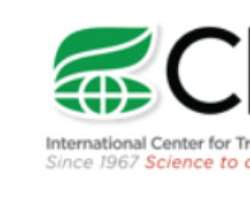‘Feed Nigeria’ Spurred by CIAT Agreement with Alluvial on Groundbreaking Block Farming Initiative

The International Center for Tropical Agriculture (CIAT) today announces a partnership with Alluvial Agriculture, a collective farming business grouping thousands of smallholders in Nigeria.
CIAT, a research center for the Consultative Group for International Agricultural Research (CGIAR) – a global research partnership for a food-secure future supported by private foundations, national governments and multilateral development agencies – will sign its agreement with Alluvial on the opening day of the Feed Nigeria Summit, the biggest annual gathering focused on this nation’s frontline role in addressing global food security. CIAT Regional Director for Africa, Dr. Debisi Araba, and Alluvial Managing Director, Dimieari Von Kemedi, will address the conference before signing their agreement today (Monday) at 3pm in Abuja.
Alluvial is tackling systemic problems that leave most African smallholders in poverty and threaten food security across the developing world by aggregating farmers to create a nucleus of minimum efficient scale and the necessary education, mechanization, inputs and market access.
“Alluvial's direct engagement with various value chain actors, including farmers, provides CIAT with a conduit to rapidly disseminate agriculture innovations acquired and developed through our partnerships and activities around the world,” said Dr. Araba. “CIAT provides Alluvial with the know-how, monitoring and evaluation framework to ensure that the investment in Nigeria is globally competitive and environmentally sustainable, and ensures that the investment is able to evolve and respond to market signals.”
Together, CIAT and Alluvial plan to establish a replicable model for scaling up adoption of agricultural technologies and innovations to improve livelihoods across the food value chain and foster environmental sustainability of agricultural development, said Dr. Araba. “This partnership is poised to support and benefit all value chain actors, including those working in the production, distribution and consumption hubs of the food system,” added Dr. Araba.
CIAT’s initial five-year plan with Alluvial will focus on climate change adaptation, soil fertility and mapping, yield optimization and making markets work for the poor, among other areas being explored by the two organizations. Their findings will be reported at least twice a year.
“CIAT’s work through Alluvial will make a difference to the lives of whole communities, as well as providing scientific and social lessons applicable to CIAT’s extensive network across the tropical world,” said Mr. Kemedi.
While poverty has reportedly been falling across the developing world, food shortages have been rising, as evidenced by increased malnutrition rates since 2014. [1] Higher population growth puts Africa at particular risk of a food and humanitarian crisis with global dimensions in terms of unprecedented migration. Nigeria is at the epicenter: currently the world’s seventh largest country, Nigeria will overtake the US as the third most populous by 2050, according to a 2017 report by the UN’s Department of Economic & Social Affairs.
It’s the Niger Delta that’s the initial focal point for Alluvial, which literally means the product of alluvium, or deposits of clay, silt and sand left by floodwater in a river valley or delta that typically produces fertile soil. Notorious for oil-related tensions, the Niger Delta is less known for its rich soil, supporting abundant agriculture, horticulture and aquaculture. Mr. Kemedi, a pacifist protest leader who played a leading role in the Niger Delta peace accords a decade ago, set out to change this with the creation of Alluvial in 2011.
“CIAT presents an fantastic opportunity for Alluvial as we benefit directly from many decades of research and experience that CIAT will bring to our community block model to improve yield and make markets work for the poor,” said Mr. Kemedi. “We will celebrate success only when our work helps farmers to earn higher incomes and contributes to food security.”
